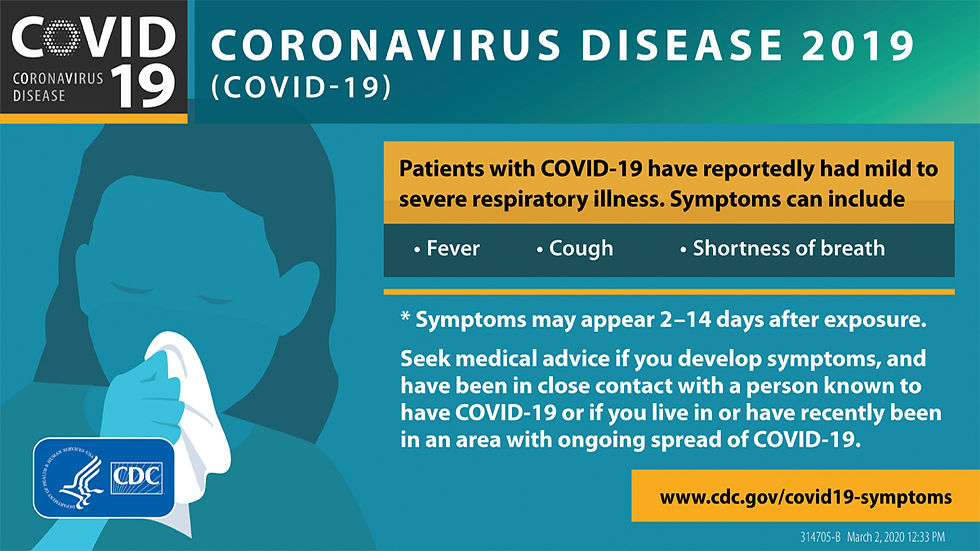5 Ways to Support Your Immune System Through the Holidays from Dr. Karly McMaster ND
- Dr. Lisa Ghent, ND

- Dec 10, 2019
- 3 min read
Part 1: Pillars of Health
The holidays are inevitably a stressful time of year for most people. With the increased stress and change in climate, our immune systems often need some love to prevent the common cold and flu. As a naturopathic doctor I am always evaluating a patient's foundation or "pillars" of health. These are the aspects that support our overall wellness and are crucial in optimizing your health and healing. It's easy to overlook these principles during the holiday season, but these 5 pillars of health will help to support your immune system through the winter months:

1. Nutrient-rich foods
Have you ever heard to "eat the rainbow"? That's because foods that are rich in nutrients and vitamins are often deep colours like greens, purples, reds. For example: spinach, kale, beets, cherries, blueberries, carrots, and tomatoes. Not only do the colours make your plate beautiful, but your immune system will thank you for all the nutrients you're feeding it! Foods that are high in vitamins and nutrients give your body what it needs to fight off infections and recover more effectively.
2. Hydration
Hydration may seem to be one of the most straight-forward pillars of health, but it's still very challenging for many people to get adequate daily water intake. General recommendations of water intake depend on body weight, physical activity level, environment, intake of dehydrating substances (coffee, black tea, soda, alcohol), and individual health requirements (pregnancy, breastfeeding, kidney disease, etc.). The fact is, our body weight is made up of about 60% water and every cell relies on water for basic functioning.
3. Rest & Recovery
Even though your "to do" list might be a mile long around this time of year, it's important to let your body have time to rest and recuperate. Getting enough sleep is crucial to your body's natural healing process. When you are constantly busy or living in "fight or flight" mode, cortisol, your body's stress hormone, kicks into overdrive. This can make it really difficult to have regular sleep patterns and also affect our immune system. Typically, cortisol should be low at night and this decrease works in rhythm with other hormones (growth hormone and melatonin) that have an overall "pro-inflammatory" effect in the body. That means that while we sleep our body's immune system is working hard to fight off infections by increasing the production and distribution of immune cells. Therefore, if cortisol is elevated, our immune system function is decreased and we are at higher risk of infection.
4. Exercise
Movement plays a vital role in our overall health including, but not limited to cardiovascular health, digestive health, mental health, and detoxification pathways. Therefore, it's not surprising that exercise also influences our immune system. Studies have shown that regular, moderate exercise increases secretory IgA, your body's first-line defence to bacterial invaders. Secretory IgA is present in our saliva, lungs and throughout the digestive tract and acts to prevent attachment and colonization of foreign bacteria.
5. Connection
Humans have an innate desire to belong, be loved, and feel secure, all of which contribute to our sense of connection to the world. Threats to human connection and feelings of loneliness actually affect immune function. For example, carriers of the herpes simplex virus who reported loneliness had higher viral load (antibody titres) compared to carriers reporting more human connection. Additionally, inflammatory markers, such as TNF-alpha, IL-6, and IL-1 have been shown to be elevated in patients who self-report loneliness compared to socially connected patients. Thus human connection has direct effect on immune regulation and inflammation.
The holidays can be particularly difficult for people who have experience loneliness, so it's important time to reach out to people around you and check in on them! Additionally, many towns hold community Christmas dinners and events open to everyone. For local people who are interested, check out the "Jingle and Mingle Community Christmas dinner" in Ladner, BC. Click here for more info: https://allsaintsladner.org/calendar/2018/12/25/community-christmas-dinner
Fun fact: Did you know, connection to nature also have beneficial effects on the immune system? Not only has being in nature shown to increase NK cells (part of our innate immune system that fights infection), but these effects have been shown to last for 30 days after being in nature.
Want to read more? Check out the full blog on Dr. Karly's website: https://www.drkarlymcmaster.com/post/5-ways-to-support-your-immune-system-through-the-holidays






Comments